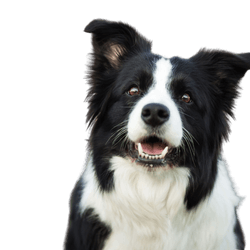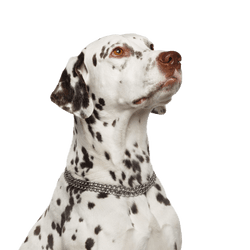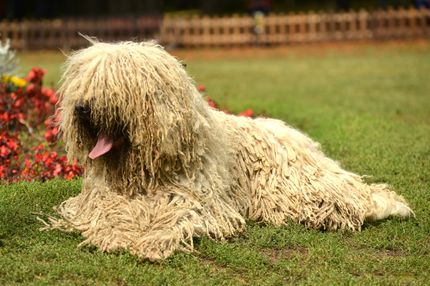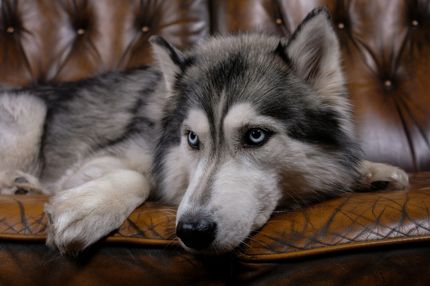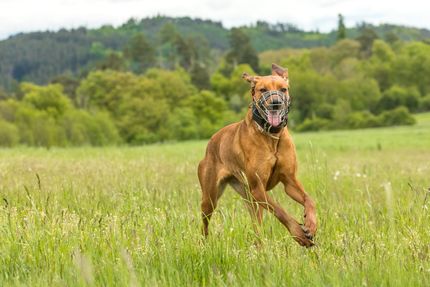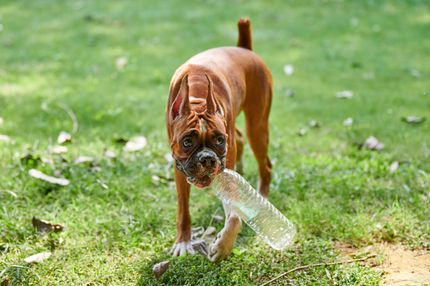Facts & Origin
Border Collie and Dalmatian Mix - a hybrid breed.
The Border Collie-Dalmatian mix is an energetic and playful dog that gets along well with children. They are intelligent and easy to train, which makes them a great family pet.
What are breed characteristics of this mix dog?
The Border Collie-Dalmatian mix has an athletic body with a long neck and muscular legs. They usually weigh between 20-25 kg and are 50-60 cm tall. They have a short, dense coat that is black and white in color.
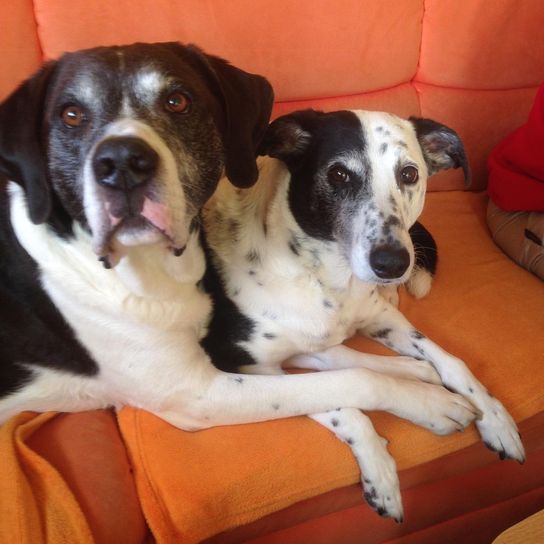
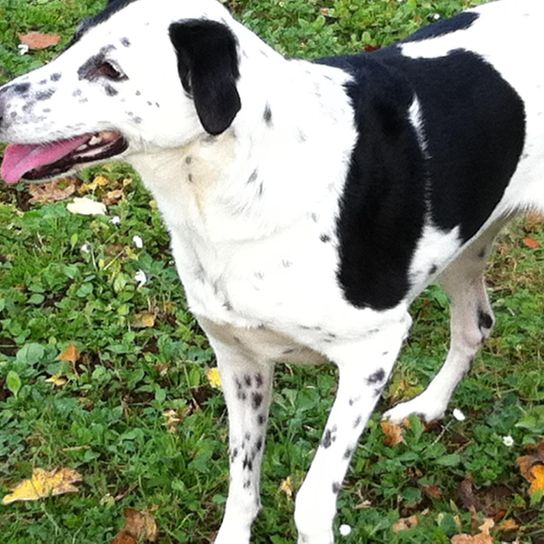
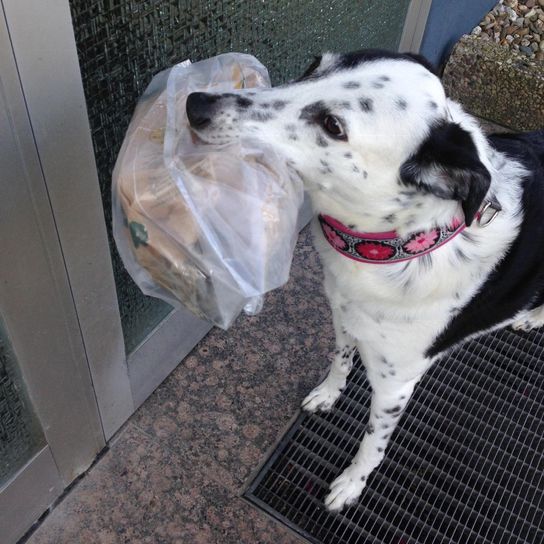
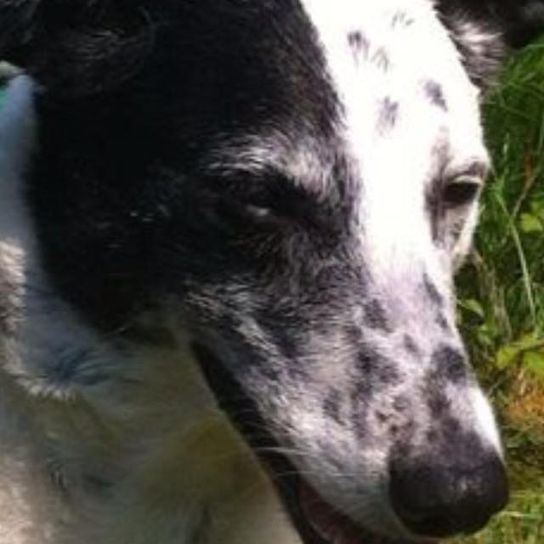
| Alternate Name | Dalmacollie, Dalmaborder, Bordatiner, Bordertiner, Dalmacollie, Bordermatian |
| Origin | UK - Croatia |
| Life expectancy | 10 - 15 years |
| Care requirements | high-maintenance - low-maintenance |
| Activity level | high - average to high |
| FCI group | not recognised |
| AKC group | not recognised |
| KC group | not recognised |
More Border collie mixes
More Dalmatian mixes
Attitude, character and temperament of the breed
Possible character traits of Border Collie and Dalmatian mix - Such is probably his nature.
Among mixed breeds, the Border Collie-Dalmatian mix is one of the most popular. Often referred to as the Bordermatian, this mixed breed is known for being intelligent, playful and friendly. They make excellent family pets and get along well with children.
The Border Collie is a herding dog breed known for their intelligence and high energy level. They are loyal and loving dogs that enjoy spending time with their family. They need plenty of exercise and mental stimulation to stay happy and healthy.
The Dalmatian is a hunting dog breed known for their spots and friendly nature. They are also very energetic dogs that love to spend time with their family. They need a lot of exercise and are known to be intelligent and playful.
If you mix these two breeds together, you will get an intelligent, energetic and friendly dog. They make great family pets and do well with children. They need plenty of exercise and mental stimulation to stay happy and healthy.
Character
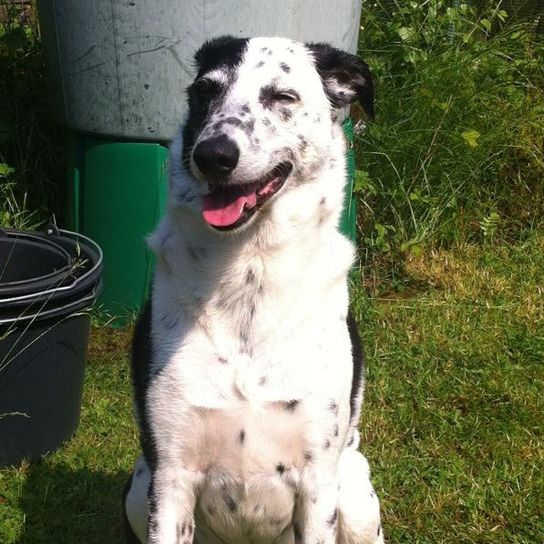
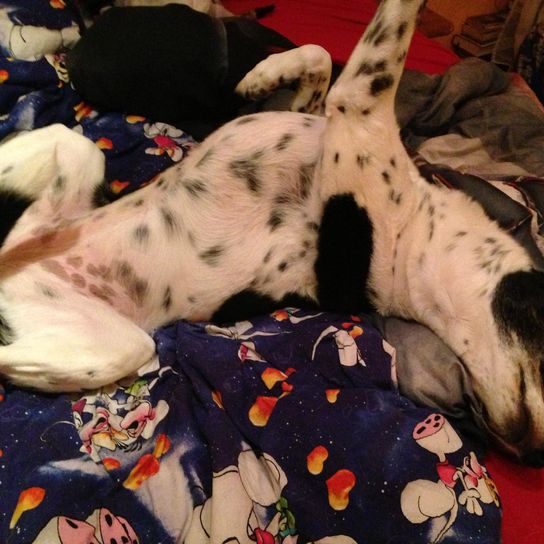
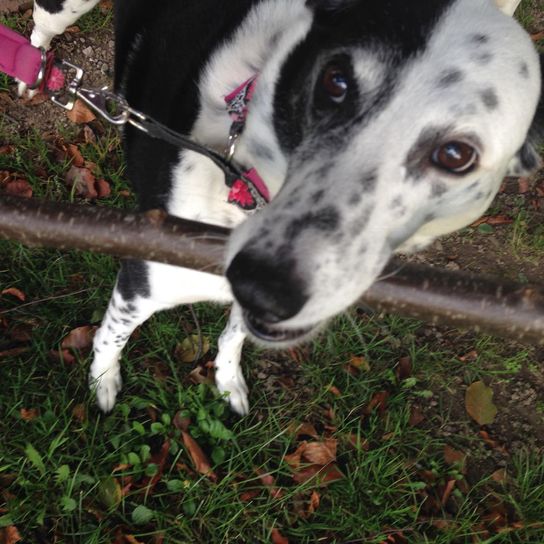

What diseases can occur in Border Collie and Dalmatian mixes
If you own a Border Collie-Dalmatian mix, there are some health issues you should be aware of. These include
- Hip dysplasia,
- elbow dysplasia and
- Patellar Luxation.
Border Collies are also prone to hip dysplasia, while Dalmatians are prone to deafness. It is important to have your dog examined regularly by a veterinarian and watch for signs of these conditions. Early detection and treatment is key to keeping the Border Collie-Dalmatian mix healthy and happy.

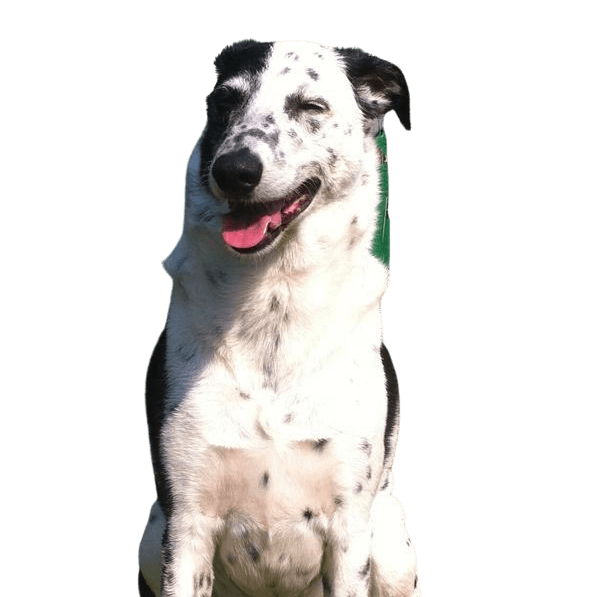
What does this mixed breed look like?
The coat of a Border Collie-Dalmatian mix is usually short and dense. The coat is black and white, with large patches that are evenly distributed.
| Fur length | medium - short |
| Fur | flat coated |
| Ear shape | Standing Ears - Triangle |
| Tail | fanned out - lang |
| Anatomy | slim, sporty, sporty |
| Size ♀ | 46 - 58 cm |
| Weight ♀ | 12 - 24 kg |
| Size ♂ | 48 - 61 cm |
| Weight ♂ | 14 - 24 kg |
| Suitable For | - |



Known Diseases
Epilepsy
Definition: Dog has epilepsy if, for example, at least two epileptic seizures occur more than 24 hours apart.
Eye diseases
Often occur with allergies and intolerances.
Allergies
Can occur in a number of breeds, regardless of genetic makeup.
Numbness
Often occurs in old age.
FAQ
-
A Border Collie-Dalmatian mix is a cross between two popular dog breeds, the Border Collie and the Dalmatian.
-
Border Collie and Dalmatian mixes can look different, but they are often very striking dogs with a unique blend of characteristics from both parent breeds. They may have the short, smooth coat of the Border Collie or the longer, coarser coat of the Dalmatian. They may also inherit the spots of the Dalmatian, although this is not always the case.
-
Border Collie and Dalmatian mixes are usually very intelligent and energetic dogs that need lots of exercise and mental stimulation. They can be very loyal and loving companions, but also have a strong herding instinct and need plenty of room to run and play.
-
Border Collie and Dalmatian mixes need plenty of exercise and mental stimulation to stay happy and healthy. They should go on long walks or runs every day and have plenty of room to play. They may also benefit from obedience training or other activities that challenge their minds.
-
Yes.

